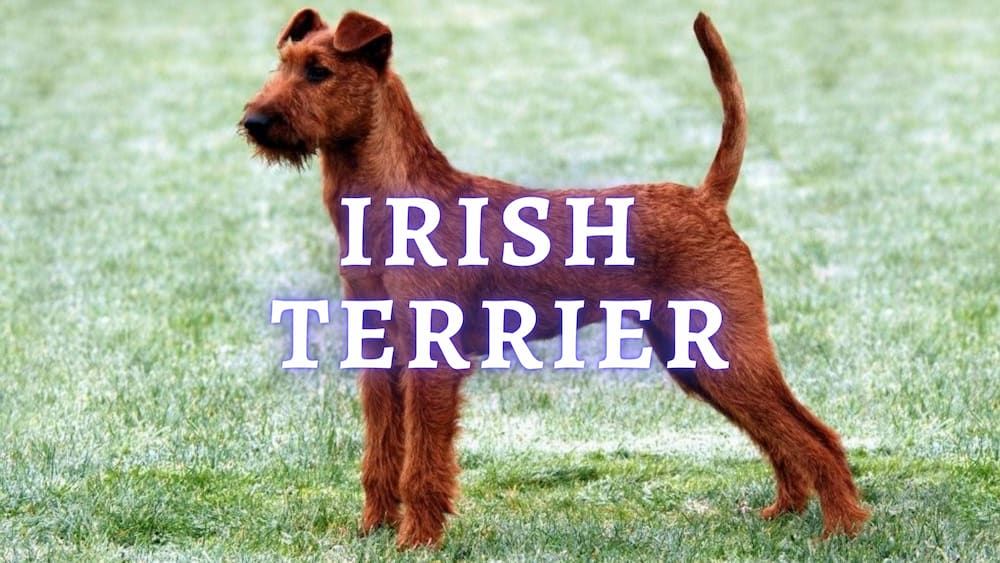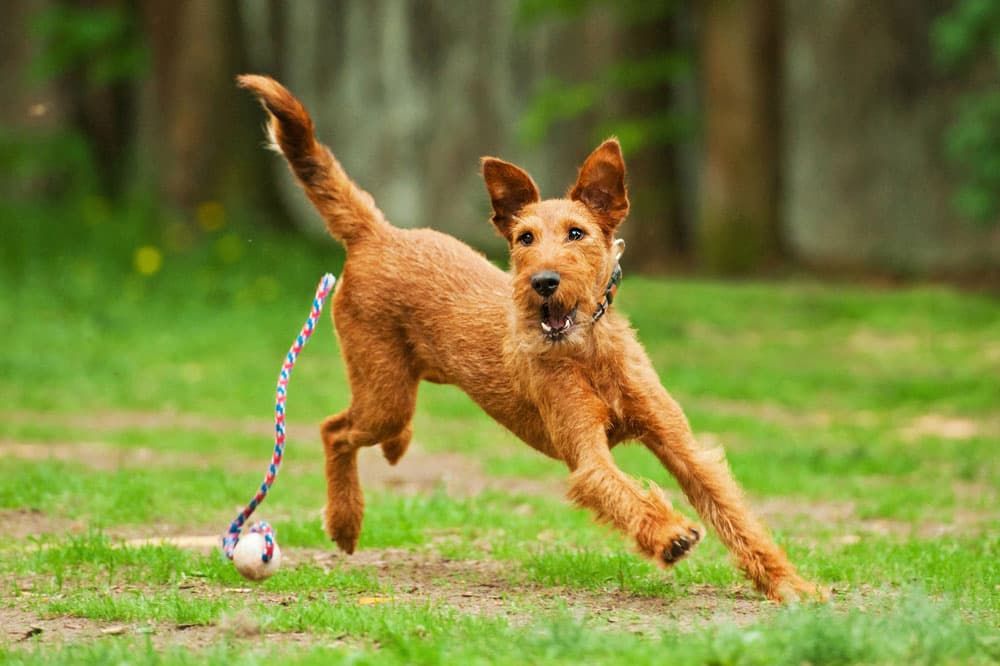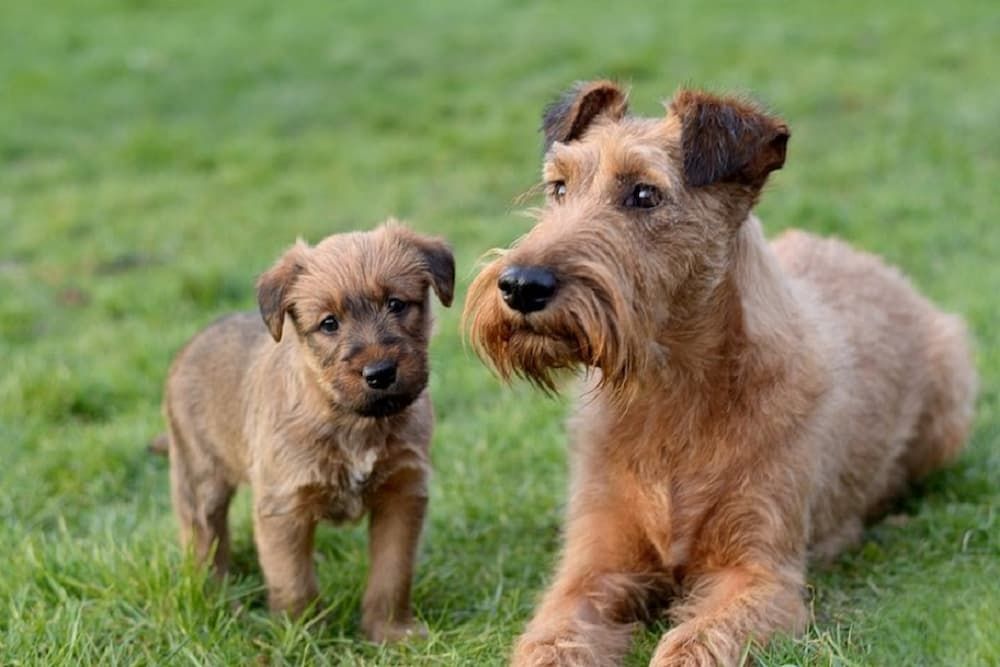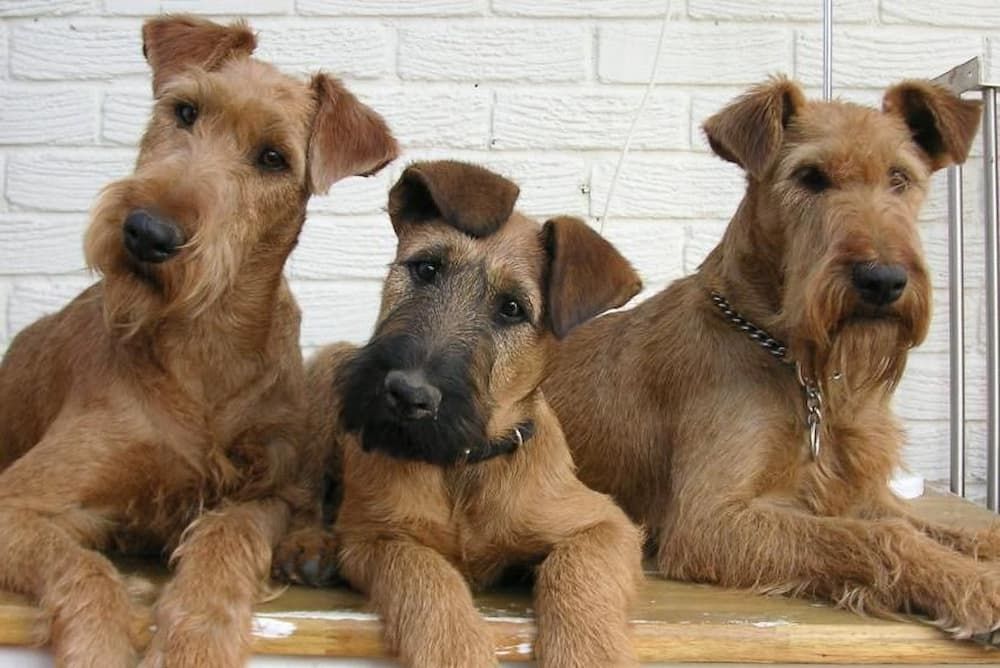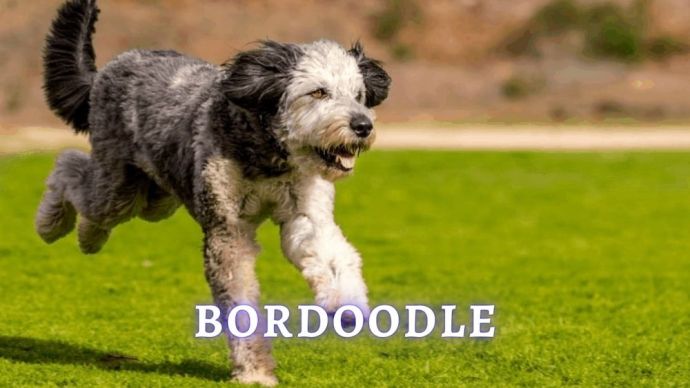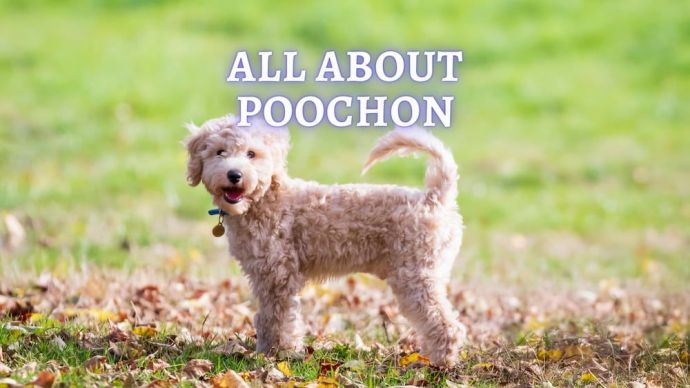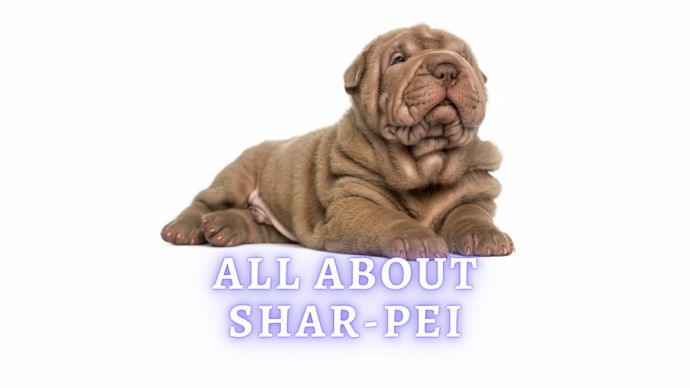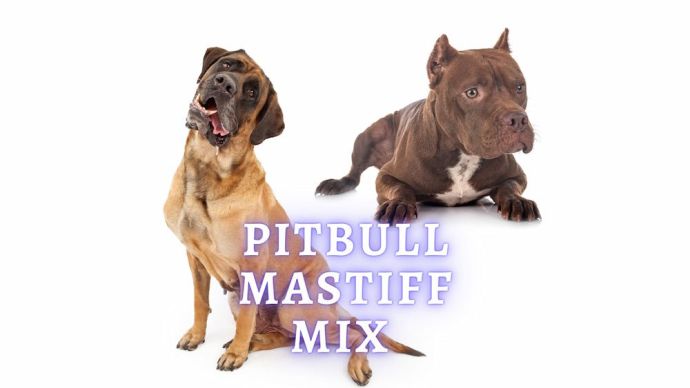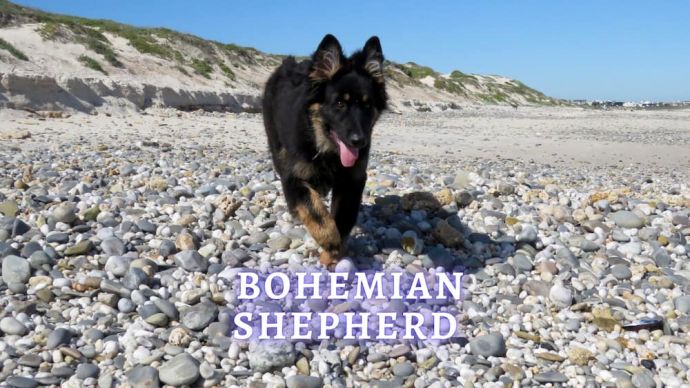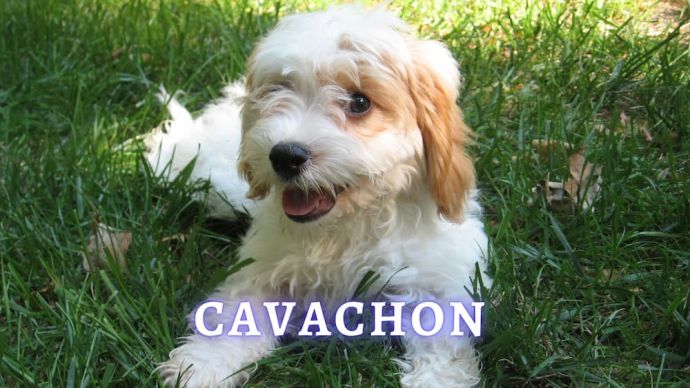Irish Terrier Breed Information: Health, Activity Level, Temperament and Personality
Written by:
Author: Seb Jenkins
Seb is a professional SEO writer with a degree in Journalism, he has five years of experience in writing and editing. Seb specializes in topics like dog and cat breeds, aquarium guides, and pet care. He is passionate about educating and entertaining animal owners worldwide. In his spare time, Seb enjoys writing fiction novels.
View all 83 articlesLearn about our editorial process and veterinary review board.
Viewed: 1937
Updated on: 06/08/2023
Knowing the general rules to look after a dog is one thing, but you must also understand your dog’s breed and the individual needs that come with this. In this article, we will be looking at the Irish Terrier breeds and all the main details, needs, and characteristics of this particular kind of canine. This includes the Irish Terrier dog background, the breed’s history, main details, facts, temperament, personality, activity, health, grooming, hypoallergenic, and adoption/rescue information.
The Irish Terrier dog originates from the Emerald Isle and is often referred to as the ‘daredevil’ due to its courageous and bold nature. These medium-sized dogs can be spotted from far away thanks to their fiery red fur, which seemed to reflect their personality. When out and about and while protecting the home, the Irish Terrier is brave and hard-fought. However, they are also extremely loving when chilling with the family behind closed doors. Adult Irish Terrier is just over 18 inches in height and has a sturdy build.
Characteristics
| Weight | 25 to 27 pounds |
| Height | 18 to 20 inches |
| Colors and Patterns | Red, Red Wheaten, Wheaten |
| Life span | 12 to 16 years |
| Suitable for | Families, farms, and those in need of guard dogs |
Irish Terrier Breeds History
As the name suggests, the Irish Terrier has been a popular choice in rural Ireland for hundreds of years now. They are seen as the epitome of the Irish farm dog, with bundles of spirit and smarts. Thanks to these valuable traits, Irish Terriers often work as guard dogs, guardians, hunters, sheepdogs, and farm dogs. As far as experts know, the Irish Terrier emerged sometime in the 1870s, and they were welcomed into the AKC just fifteen years later. As you can see, it is one of the oldest terrier breeds and the oldest recognized breed.
Interesting facts about the breed
- Irish Terriers were used in World War One as messengers.
- The original Irish Terriers came in a multitude of colors, including black and tan. However, in the 19th century, the fiery red we see today took over.
- The first records of Irish Terriers date back to 1875 in Scotland.
- Irish Terriers have longer legs and bodies than other terriers.
- The Irish Terrier is among the oldest of all the terriers.
- The Irish Terrier is the only all-red version of the breed.
Temperament and Personality
Over the years, the Irish Terrier has mainly been used as a companion family dog, a guard dog, a farm dog, and a hunter. Thanks to these skills, the red terriers have become plucky, brave, alert, good-tempered, and adaptable. However, they can also be reckless and overly curious at times too. While they are loving and fun dogs, they can also be difficult to live with at times, especially as they are often scrappy with other dogs.
Of course, as with any breed of dog, the Irish Terrier’s temperament depends on many things, such as their upbringing, family history, training, and social life. Irish Terrier puppies are usually curious and playful when they have nice temperaments, so that is something to look out for. Definitely avoid the puppy trying to fight their brothers and sisters when looking for a new pet. However, it is equally important to avoid the one cowering in the corner. We advise that you go for the puppy in between for the most well-suited family dog. It is also always a good idea to meet at least one of the puppy’s parents, if possible, just to see their temperament when they are fully grown. Believe it or not, meeting parents and older siblings can be a great way of telling what your puppy will be like when they are older.
Irish Terriers thrive on early socialization and need it from the early stages of their lives. That means ensuring that they are exposed to other dogs, different people, and an array of sounds, experiences, and sights from an early age. The more social they are with humans and other dogs when they are younger, the more well-rounded they will be when they grow up. It can even be a great idea to send them to a puppy training or puppy kindergarten class to improve this. You can also invite over different visitors regularly to get them used to new people, while also taking them out and about to improve their social skills with other dogs and people.
Adaptability (overall 3 out of 5)
| Adapts well to apartment living | 3 out of 5 |
| Tolerates being alone | 2 out of 5 |
| Tolerates cold weather | 2 out of 5 |
| Tolerates hot weather | 3 out of 5 |
All Around Friendliness (overall 3 out of 5)
| Affectionate with family | 4 out of 5 |
| Kid-friendly | 4 out of 5 |
| Dog friendly | 2 out of 5 |
| Cat friendly | 2 out of 5 |
| Friendly toward strangers | 2 out of 5 |
Health and Grooming Needs (overall 3 out of 5)
| Amount of shedding | 2 out of 5 |
| Drooling potential | 2 out of 5 |
| Easy to groom | 3 out of 5 |
| Overall health | 4 out of 5 |
| Weight gain potential | 4 out of 5 |
Trainability (overall 4 out of 5)
| Easy to train | 3 out of 5 |
| Intelligence | 4 out of 5 |
| Tendency to bark | 4 out of 5 |
Physical Needs (overall 4 out of 5)
| Energy level | 4 out of 5 |
| Intensity of exercise | 4 out of 5 |
| Exercise needs | 4 out of 5 |
| Playfulness | 4 out of 5 |
Activity
Irish Terriers require regular daily mental challenges to stimulate them. This can come in the form of playtime and training, as well as physical exercise. These dogs need a firm hand but also lots of love. Fortunately, they are huge people loves, whether their owners or strangers; they are not limited to one human.
Irish Terriers are very lively and playful, meaning they have high amounts of energy and are great athletes. With this comes a need for regular exercise every day. As well as walking them every single day, a fenced-off backyard is always a great way to let them roam and exercise themselves. Failing this, they may need several walks a day to keep their fitness up.
Health
All dog breeds are the same in that they can pick up various health problems, just like humans. If a breeder does not offer you a health guarantee, do not use them. If the breeder tells you that the dog has no known problems and is completely healthy, do not use them. They are likely hiding something. Reputable breeders will provide a health guarantee and will be honest about every little thing when giving you a full health report. At least, they will provide you recent vet’s check-up and tell you what health problems puppy parents have. Good breeder always checks that you will know everything about Irish terrier health conditions, even if you bringing home healthy puppies.
One commonly known issue in Irish Terriers is muscular dystrophy, while eye issues like progressive retinal atrophy and cataracts are also regular problems. Irish Terriers can also suffer from hyperkeratosis when the pads on the base of their feet thicken. While this is now a rare condition, it can be passed on from parent to puppy, and those affected by the condition should not be bred. Ask your breeder for a full, detailed health report.
Beyond that, you have a general duty of care to keep your Irish Terrier healthy from issues that can impact all dogs. Obesity is the main one to watch out for. Keep them well exercise and at a healthy weight. If they become overweight, you should put them on a diet and ensure that they are given enough walks and playtime in the yard.
READ MORE: Can Dogs Eat Sour Cream?
Grooming
Fortunately, Irish Terriers do not require a huge amount of grooming. We would advise that you take a brush and comb through their hair around once a week to keep them looking great, but nothing more regular than that. If they get dirty from playtime in the yard or walks, you should wash them. You do not need to trim their coat. However, many owners look to get their terrier groomed by a professional once every few months to keep them looking beautiful. Of course, there is still a standard of basic care that you must uphold, as with many dogs, including cutting their nails. We advise cutting them once every one to two weeks. You can also brush their teeth with a paste approved by their vet or invest in certain chews and foods that clean the teeth for you. You should also give them a check over once per week, looking for any infections. For example, you can check the ears for dirt and redness. You should teach all of this grooming from a young age to ensure that your Irish Terrier gets used to it and doesn’t kick up a fuss for the rest of its life.
READ MORE: The 6 Best Online Dog Grooming Courses in 2021
Adoption and Rescue
There are several things to keep in mind when either adopting an Irish Terrier from a breeder or welcoming one in from a rescue center or animal shelter.
You should always start by searching on the internet to see whether there are already any Irish Terriers for sale/adoption in your local area. Some searching and comparison sites will allow you to search for very specific criteria. After all, there could be just the Irish Terrier you are looking for already down the road at a shelter, just waiting to be adopted. You may also have some luck searching for shelters and breeders on social media like Facebook and Twitter.
We recommend that you reach out to local pet experts in your area when researching Irish Terriers. This could be professional dog walkers, dog groomers, or even vets. They may even have connections when it comes to actually source a dog, but even if they don’t, they can be a great source of information for you.
There are certain breed rescue groups all around the world dedicated to protecting certain species of dog. For example, there is an Irish Terrier Club of America rescue network, which, as the name suggests, is a great resource when searching to adopt an Irish Terrier from a reputable breeder. These groups are often very open and honest about any potential problems with certain breeds. They may even have some fostering opportunities where you can take an Irish Terrier temporarily to see how things go.
Whenever you have an expert at your disposal, you should always take the time to ask a few key questions about Irish Terriers. These should include, but are not limited to:
- How energetic are they?
- How do they behave around other dogs and other animals?
- How do they respond to people?
- How old are they?
- Are they trained?
- Have they even been aggressive?
- What is their personality like?
- Do they have any health problems? Are there any genetic health problems?
READ MORE: How much does it Cost to Adopt a Dog?
Is Irish Terrier Hypoallergenic?
Irish Terriers are hypoallergenic dogs. They do not drool or shed much at all. Hypoallergenic means they are unlikely to cause any kind of allergic reaction. That means anyone who sometimes suffers from allergies when around certain dogs should not be impacted too much by an Irish Terrier.
Conclusions
In conclusion, the Irish Terrier is a perfect dog for all kinds of situations. If you are looking for a loving new family dog that is likely to get on with everyone, you can rely on the Irish Terrier. If you want a dog to help around the farm, you can tick that box too. If you are looking for a brave guard dog to protect the home, they are great at that. And if you are searching for a dog who is a great natural hunting companion, the Irish Terrier is perfect.
Pros and Cons of Irish Terriers
Pros
Cons
- Dependable guard dog.
- Good at helping around the farm and hunting.
- A very brave dog.
- Athletic and active pet.
- Doesn’t shed too much hair.
- Is hypoallergenic.
- Doesn’t drool too much.
- Doesn’t bark too much in general.
- Can be scrappy with other dogs.
- Needs lots of regular exercises.
- Can be very stubborn.
- Likes to dig holes.
- Can be hard to find/adopt.
- Can be clever escape artists.
- They love to chase other animals.
- Can bark lots when on high alert.
FAQs
Are Irish Terriers aggressive?
According to the Irish Terrier Club, Irish Terriers are very brave dogs and will never back down from a challenge. They are also known to be keen chasers, meaning they will likely chase off after smaller animals. These dogs can also be aggressive towards other dogs of the same sex and have been known to fight to the point of serious injury, whether that be to them or the other dog. They are also happy to fight dogs much larger than themselves. However, they are still very loving around humans.
Can Irish Terrier be left alone?
Therefore, Irish Terriers are very social dogs and are not fond of being left alone for long periods of time. Unfortunately, if they are left unattended for a long time, they can often resort to destructive behavior around the home, especially if it is an Irish Terrier puppy, but this also applies to an adult dog. However, Irish Terriers are also very independent dogs, so this won’t happen if they are left alone for five minutes here and there.
How much are Irish Terriers?
The average price for a KC/American Kennel Club registered Irish Terrier is around $1400.
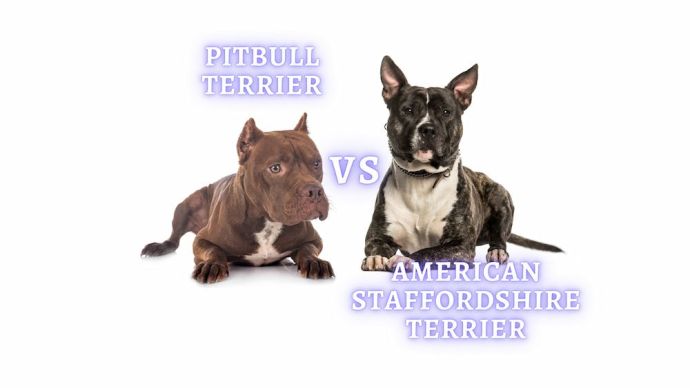 Dog Breeds American Staffordshire Terrier Vs Pitbull: Appearance, Activity Level and Temperament Difference
Dog Breeds American Staffordshire Terrier Vs Pitbull: Appearance, Activity Level and Temperament Difference - 252
- 0
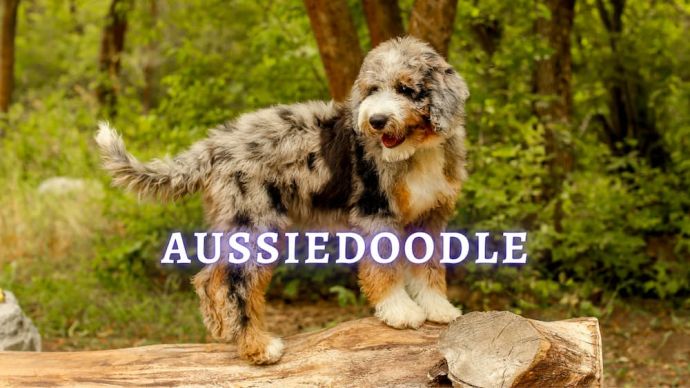 Dog Breeds Aussiedoodle: Breed Info, Personality, Activity Level and Life Span
Dog Breeds Aussiedoodle: Breed Info, Personality, Activity Level and Life Span - 1282
- 0
 Dog Veterinary Tips Why is my Dog throwing up: Causes and Preventing (Veterinary Advice)
Dog Veterinary Tips Why is my Dog throwing up: Causes and Preventing (Veterinary Advice) - 23424
- 5
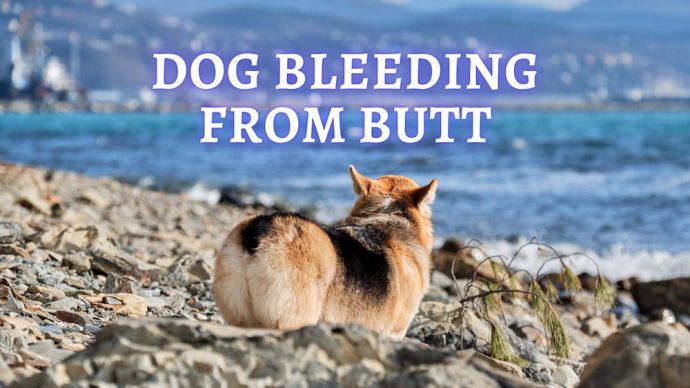 Dog Care Why Is My Dog Bleeding From Its Butt? Causes and treatment of rectal bleeding in the dog
Dog Care Why Is My Dog Bleeding From Its Butt? Causes and treatment of rectal bleeding in the dog - 22076
- 0
 Dog Care My Dog Keeps Scratching His Mouth: Reasons Why Your Dog Scratching Face
Dog Care My Dog Keeps Scratching His Mouth: Reasons Why Your Dog Scratching Face - 17561
- 1









